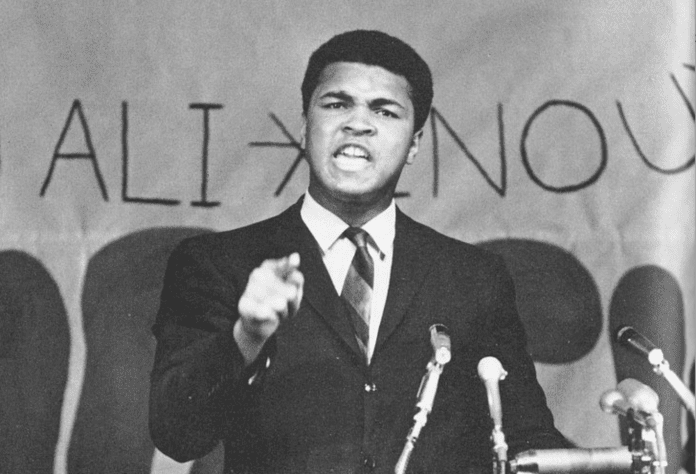Only halfway done, 2016 has already seen the deaths of a number of unparalleled sports legends.
Most recently the sports world lost the most towering figure in all of women’s basketball in longtime Tennessee Volunteers head coach Pat Summitt. She won eight national championships, 16 SEC regular season and tournament titles and put together a perfect 39-0 season in 1998 in which her Vols beat the Lady Razorbacks in Arkansas’ only Final Four appearance. Summitt also won a gold medal as the coach of the 1984 U.S. Women’s Olympic Basketball team and was named the Naismith Basketball Coach of the 20th Century. Naturally, she’s in the Naismith Basketball Hall of Fame.
But Summitt was far more than just a basketball coach. A great leader, she lifted her program to heights not before seen in the women’s or men’s game (outside of John Wooden’s UCLA dynasty), inspired millions and changed the way many Americans think about women’s sports.
Hockey legend Gordie Howe, a six-time Hart Trophy winner as the NHL’s Most Valuable Player, also recently died. Dubbed Mr. Hockey, Howe’s NHL career lasted 26 seasons and resulted in four Stanley Cup wins for the Detroit Red Wings. He also played another six seasons in the World Hockey Association. In all, his pro career stretched from the 1940s through 1980s.
He will connect more than far-flung decades: The new bridge being built over the Detroit River that will connect Michigan and Canada is to be named for Howe. As a tribute to Howe and his iconic #9 jersey, a public visitation with his casket was held in Detroit from 9 a.m. to 9 p.m. soon after his passing.
But there was probably no bigger worldwide loss this year than that of Muhammed Ali. A truly transcendent figure, you didn’t need to be a boxing fan to be a fan of the self-described greatest of all-time. Brash, bordering on arrogant, and always controversial during his boxing heyday, Ali lectured at the University of Arkansas among other universities during his suspension from boxing for resisting the draft during the Vietnam War. He eventually returned to the ring and the top of the sport, and spent the three decades after his retirement as one of the world’s most respected ambassadors of sport, religion, and race.
In recent years Parkinson’s disease took him out of the public eye and, as some writers predicted, the neurodegenerative illness eventually took his life. But never his spirit — nor the long shadow he still casts in the world of boxing. The tributes keep rolling in for this transcendent figure who demolished so many walls dividing sports, religion and politics.
When Ali, then Cassius Clay, became heavyweight champion in 1964 he was a 7-1 underdog against Sonny Liston. Born to a sharecropping family is St. Francis County, Ark., Liston spent his childhood working long hours in the fields and taking beatings from his father. As a product of that brutal upbringing, coupled with scant schooling, he eventually landed in a St. Louis prison. In a fortuitous twist of fate, it was prison that freed Liston’s true calling — boxing.
Read more about Muhammad Ali and Arkansas in my book:
Liston trained hard in jail and, a year after his release, turned pro. He rose to No. 1-ranked contender in six years. In 1962, the fearsome bruiser took on world heavyweight champion Floyd Patterson, and 2:06 into the first round felled him with a left hook that Sports Illustrated’s Gilbert Rogin wrote “crashed into Patterson’s cheek like a diesel rig going downhill, no brakes.”
Two weeks from now, heavy underdog Chris Arreola faces undefeated WBC heavyweight champion Deontay Wilder in Alabama. The boxing betting is going almost exclusively to Wilder, and right now the odds are 1/16 that he will win. You can get 7/1 odds on an Arreola upset – the same exact numbers for Clay in 1964.
Wilder has reach, while Arreola has the power. If he gets inside to land a knockout punch, expect a new WBC heavyweight title holder.




After my PARKINSON DISEASE diagnosis, I started out taking only Azilect, then Mirapex and sinemet as the disease progressed but didn’t help much. In July last year, I started on PARKINSON DISEASE TREATMENT PROTOCOL from Mayaka Natural Clinic One month into the treatment, I made a significant recovery. After I completed the recommended treatment, almost all my symptoms were gone, great improvement with my movement and balance. Its been a year, life has been amazing (ww w. mayakanaturalclinic. c om).